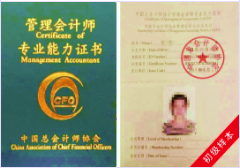硕士研究生入学统一考试英语试题(三)
Part B
Directions:
In the following article, some sentences have been removed. For Questions 41-45, choose the most suitable one from the list A-G to fit into each of the numbered blanks. There are two extra choices, which do not fit in any of the blanks. Mark your answers on ANSWER SHEET 1. (10 points)
The time for sharpening pencils, arranging your desk, and doing almost anything else instead of writing has ended. The first draft will appear on the page only if you stop avoiding the inevitable and sit, stand up, or lie down to write. (41)
Be flexible. Your outline should smoothly conduct you from one point to the next, but do not permit it to railroad you. If a relevant and important idea occurs to you now, work it into the draft. (42)Grammar, punctuation, and spelling can wait until you revise. Concentrate on what you are saying. Good writing most often occurs when you are in hot pursuit of an idea rather than in a nervous search for errors.
(43)Your pages will be easier to keep track of that way, and, if you have to clip a paragraph to place it elsewhere, you will nit lose any writing on the other side.
If you are working on a word processor, you can take advantage of its capacity to make additions and deletions as well as move entire paragraph by making just a few simple keyboard commands. Some software programs can also check spelling and certain grammatical elements in your writing.(44)These printouts are also easier to read than the screen when you work on revision.
Once you have a first draft on paper, you can delete material that in unrelated to your thesis and add material necessary to illustrate your points and make your paper convincing. The student who wrote: The A &P as a State of Mind wisely dropped a paragraph that questioned whether Sammy displays chauvinistic attitudes toward women.
(45)Remember that your initial draft is only that. You should go through the paper many times-and then again- working to substantiate and clarify your ideas. You may even end up with several entire versions of the paper. Rewrite. The sentences within each paragraph should be related to a single topic. Transitions should connect one paragraph to the next so that there are no abrupt or confusing shifts. Awkward or wordy phrasing or unclear sentences and paragraphs should be mercilessly poked and prodded into shape.
[A] To make revising easier, leave wide margins and extra space between lines so that you can easily add words, sentences, and corrections. Write on only one side of the paper.
After you have clearly and adequately developed the body of your paper, pay particular attention to the introductory and concluding paragraphs. It''s probably best to write the introduction last, after you know precisely what you are introducing. Concluding paragraphs demand equal attention because they leave the reader with a final impression.
[C] It's worth remembering, however, that though a clean copy fresh off a printer may look terrific, it will read only as well as the thinking and writing that have gone into it. Many writers prudently store their data on disks and print their pages each time they finish a draft to avoid losing any material because of power failures or other problems.
[D] It makes no difference how you write, just so you do. Now that you have developed a topic into a tentative thesis, you can assemble your notes and begin to flesh out whatever outline you have made.
[E] Although this is an interesting issue, it has nothing to do with the thesis, which explains how the setting influences Sammy's decision to quit his job. Instead of including that paragraph, she added one that described Lengel’s crabbed response to the girls so that she could lead up to the A&P policy he enforces.
[F] In the final paragraph about the significance of the setting in A&P, the student brings together the reasons Sammy quit his job by referring to his refusal to accept Lengel's store policies.
[G] By using the first draft as a means of thinking about what you want to say, you will very likely discover more than your notes originally suggested. Plenty of good writers don't use outlines at all but discover ordering principles as they write. Do not attempt to compose a perfectly correct draft the first time around.
Part C
Directions:
Read the following text carefully and then translate the underlined segments into Chinese. Your translation should be written clearly on ANSWER SHEET 2. (10 points)
In his autobiography, Darwin himself speaks of his intellectual powers with extraordinary modesty. He points out that he always experienced much difficulty in expressing himself clearly and concisely, but (46) he believes that this very difficulty may have had the compensating advantage of forcing him to think long and intently about every sentence, and thus enabling him to detect errors in reasoning and in his own observations. He disclaimed he possession of any great quickness of apprehension or wit, such as distinguished Huxley. (47) He asserted, also, that his power to follow a long and purely abstract train of thought was very limited, for which reason felt certain that he never could have succeeded with mathematics. His memory, too, he described as extensive, but hazy. So poor in one sense was it that he never could remember for more than a few days a single date or a line of poetry.(48) On the other hand, he did not accept as well founded the charge made by some of his critics that, while he was a good observer, he had no power of reasoning. This, he thought, could not be true, because the Origin of Species is one long argument from the beginning to the end, and has convinced many able men. No one, he submits, could have written it without possessing some power of reasoning. He was willing to assert that I have a fair share of invention, and of common sense or judgment, such as every fairly successful lawyer or doctor must have, but not, I believe, in any higher degree. (49) He adds humbly that perhaps he was superior to the common run of men in noticing things which easily escape attention, and in observing them carefully.
Writing in the last year of his life, he expressed the opinion that in two or three respects his mind had changed during the preceding twenty or thirty years. Up to the age of thirty or beyond it poetry of many kids gave him great pleasure. Formerly, too, pictures had given him considerable, and music very great, delight. In 1881, however, he said:Now for many years I cannot endure to read a line of poetry. I have also almost lost my taste for pictures or music. (50) Darwin was convinced that the loss of these tastes was not only a loss of happiness, but might possibly be injurious to the intellect, and more probably to the moral character.
Section Ⅲ Writing
Part A
51. Directions:
You have just come back from Canada and found a music CD in your luggage that you forgot to return to Bob, your landlord there. Write him a letter to
1)make an apology, and
2)suggest a solution.
You should write about 100 words on ANSWER SHEET 2.
Do not sign your own name at the end of the letter. Use “Li Ming” instead.
Do not write the address. (10 points)
Part B
52. Directions:
Write an essay of 160-200 words based on the following drawing. In your essay, you should
1)describe the drawing briefly,
2)explain its intended meaning, and then
3)give your comments.
You should write neatly on ANSWER SHEET 2. (20 points)
课程推荐
- 注册会计师普通班
- 注册会计师特色班
- 注册会计师精品班
- 注册会计师实验班
| 课程班次 | 课程介绍 | 价格 | 购买 |
|---|---|---|---|
| 普通班 | 班次特色 |
200元/一门 |
购买 |
| 课程班次 | 课程介绍 | 价格 | 购买 |
|---|---|---|---|
特色班 |
班次特色 |
350元/一门 | 购买 |
| 课程班次 | 课程介绍 | 价格 | 购买 |
|---|---|---|---|
| 精品班 | 班次特色 |
650元/一门 | 购买 |
| 课程班次 | 课程介绍 | 价格 | 购买 |
|---|---|---|---|
| 实验班 |
班次特色 |
900元/一门 | 购买 |
- 注册会计师机考模拟系统综合版
最新新闻
网站地图
专业知识水平考试:
考试内容以管理会计师(中级)教材:
《风险管理》、
《绩效管理》、
《决策分析》、
《责任会计》为主,此外还包括:
管理会计职业道德、
《中国总会计师(CFO)能力框架》和
《中国管理会计职业能力框架》
能力水平考试:
包括简答题、考试案例指导及问答和管理会计案例撰写。
- 管理会计师PCMA 免费试听
- 中级管理会计师 免费试听
- 税务管理师 免费试听
- 智能财务师 免费试听
- 国际注册会计师 免费试听
- 国际财务管理师 免费试听
- 初级会计职称考试 免费试听
- 中级会计职称考试 免费试听
- 注册会计师考试 免费试听
- 全国外贸会计考试 免费试听
- 会计实务操作 免费试听
- 管理会计师 免费试听
-
初级会计职称招生方案
·特色班
·精品班
·实验班

初级会计职称网上辅导 -
中级会计职称招生方案
·普通班
·特色班
·精品班

中级会计职称网上辅导
专业知识水平考试:
考试内容以管理会计师(中级)教材:
《风险管理》、
《绩效管理》、
《决策分析》、
《责任会计》为主,此外还包括:
管理会计职业道德、
《中国总会计师(CFO)能力框架》和
《中国管理会计职业能力框架》
能力水平考试:
包括简答题、考试案例指导及问答和管理会计案例撰写。

 您现在的位置:
您现在的位置:






